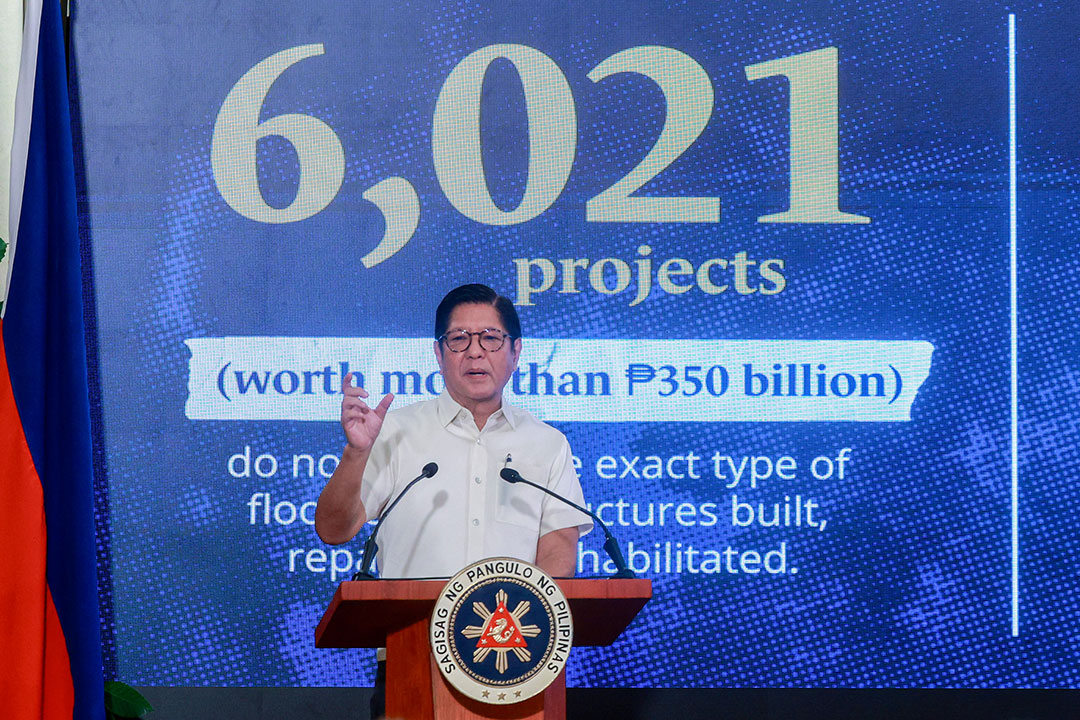Marcos slams P260-M rock-shed project in Benguet, calls it ‘useless’

By Chloe Mari A. Hufana, Reporter
PRESIDENT Ferdinand R. Marcos, Jr. on Sunday flagged a P260-million rock-shed project in Tuba, Benguet, calling it “useless” and suggesting it might be a case of economic sabotage due to substandard construction.
The President inspected the site with Baguio City Mayor Benjamin B. Magalong and found that the infrastructure had failed to serve its purpose.
He said the slope protection measures collapsed almost immediately after the project was completed, failing to prevent landslides during Typhoon Emong and monsoon rains on July 25 and 26.
The supposed slope protection has disintegrated, Mr. Marcos said, adding that the project had no visible impact in protecting motorists or surrounding communities.
The rock-shed project was implemented by the Department of Public Works and Highways — Cordillera Administrative Region and marked as completed on April 13 along the landslide-prone Kennon Road.
The project aimed to shield motorists from rock falls, but its rapid deterioration has prompted questions over accountability and corruption.
The President noted the project’s failure not only posed risks to public safety but also had a direct economic impact on the local community.
“We are talking to the mayor about the effect on businesses,” he told reporters in Filipino, adding that livelihoods were lost because of it.
The President labeled the project’s failure as potential economic sabotage, citing the cost of remedial works that may reach up to P500 million.
“You took P260 million, and we saw no effect from the contract that was carried out,” he said. “To fix the problem you gave us, it will cost another P260 million — probably even double that.”
Mr. Marcos reiterated his administration’s commitment to strengthening transparency and accountability in public infrastructure spending — a key priority underscored in his fourth State of the Nation Address (SONA) on July 28. He vowed not to leave office without addressing corruption in public works.
“If there’s one thing I will not leave this office without fixing, it’s this issue,” he said. “This is already our fifth inspection, and it’s always the same,” he added, expressing frustration over repeated infrastructure failures.
The President also raised concerns about other flood control initiatives, particularly the continued use of rock netting, a method he said has long been linked to corruption and is prohibited.
Despite this, rock netting continues to be used, with materials reportedly overpriced by more than 300%.
“The price of rock netting is P3,200, but what was charged to the government was more than P12,000 — four times higher,” he said. “So, 75% of the contract was taken as a kickback. That’s the situation we are facing. That’s why this is serious.”
Mr. Marcos stressed the need for consultations with local government units (LGU) before infrastructure projects are approved, criticizing practices that bypass LGU participation.
He called for the restoration of the consultation and acceptance process to ensure projects truly benefit local communities and uphold transparency.
Acceptance from LGUs and communities used to be required, the President said, adding that it needs to come back.
His statements reflect a broader push for reforms in the public works sector, as his administration boosts efforts to eliminate wasteful spending and corruption in government infrastructure projects.



